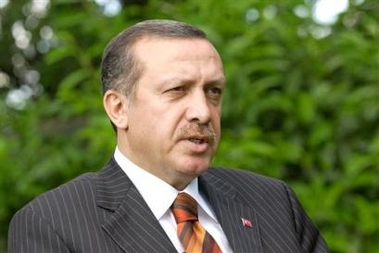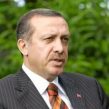
MILITARY LEADERS, ERDOGAN MEET TO DISCUSS PROMOTIONS AS TENSIONS MOUNT OVER PRESIDENCY
Publication: Eurasia Daily Monitor Volume: 4 Issue: 149
By:

The three-day annual meeting of Turkey’s Supreme Military Council (YAS) opened in Ankara today (August 1). It marked the first time that Prime Minister Recep Tayyip Erdogan and the high command of the Turkish General Staff (TGS) have come together on an official platform since the landslide victory of the Justice and Development Party (AK Party) in the July 22 general election.
YAS traditionally meets at the beginning of August each year to decide the annual round of promotions and appointments in the Turkish armed forces. YAS comprises the prime minister, defense minister, and the highest-ranking four-star generals and admirals, including the force commanders and chief of staff. In theory, the meetings are chaired by the prime minister who then submits a list of the council’s decisions to the president for approval. In practice, the decisions are taken by the serving officers present at the meeting under the guidance of the chief of staff. The discussions normally include a review of the various candidates’ personnel files together with oral assessments by the commanders at the meeting under whom the candidates have served.
Appointments to ranks of one-star general and above are usually for a four-year term. However, there are also age limits for each rank, which rise with seniority. As a result, officers who are older than colleagues of the same rank are at a considerable disadvantage as they are at a higher risk of reaching the maximum age limit for their rank — and thus having to retire — before a higher position becomes available.
No change is expected this year in either of the two most influential positions in the Turkish military. Traditionally, the Turkish chief of staff has always been drawn from the army. The incumbent, General Yasar Buyukanit, was appointed in August 2006 and is expected to remain in his post until August 2008 when he will reach the age limit of 67 for a chief of staff and be forced to retire. Buyukanit is currently expected to succeeded by the current army commander, General Ilker Basbug. However, Basbug’s age will mean that he too will only be able to serve two years — until August 2010.
Under Turkish law, in peacetime the gendarmerie is answerable to the Interior Ministry rather than the TGS. It is very unusual for officers to be transferred between the gendarmerie and the other three branches of the armed forces. However, the commander of the gendarmerie has traditionally been a four-star general on secondment from the army. For the last two years, the post has been held by General Isik Kosaner. The YAS meeting is expected to extend his command for another year prior to him being appointed army commander in 2008, which would put him in line to succeed Basbug as chief of staff in 2010 (Hurriyet, July 31).
But there will be changes in the command of both the Turkish navy and the air force this year. Navy Commander Admiral Muzaffer Metin Atac is currently expected to succeed Admiral Yener Karahanoglu, while General Aydogan Baboglu is expected to replace General Faruk Comert as head of the air force (Milliyet, July 24).
However, most attention will be focused on Erdogan’s attitude towards appointments in the army. For the members of Turkey’s 100,000 strong officer corps, one of the key tests of any civilian government is whether it interferes in promotions and appointments within the TGS. Several three-star generals who have publicly criticized the AK Party and its predecessors are due for promotion. They include General Erdal Ceylanoglu, who played a key role in the toppling of a coalition government led by the Islamist Welfare Party (RP) in 1997, and General Metin Yavuz who in April 2007 publicly attacked local government officials for dressing elementary school students in the all-covering black chador for a public parade (Yeni Safak, July 22).
The Turkish military has also regularly used YAS meetings to purge the officer corps of suspected Islamist sympathizers. In recent years there has been considerable concern in the TGS that groups such as the Sufi brotherhoods known as tariqah and the followers of the preacher Fetullah Gulen, who is currently in exile in the United States, have been trying to infiltrate the officer corps. Suspected Islamist sympathizers are usually expelled on the grounds of “ill-discipline” and are often not even aware that they are even under suspicion until their expulsion is publicly announced. Under current Turkish law, expelled officers have no right of appeal.
Since it came to power in November 2002, the AK Party has frequently promised to amend the law to allow the expelled officers to appeal. After previous meetings of YAS, Erdogan has included a note expressing his reservations when signing the expulsion orders. Many in the TGS will be waiting to see whether, with a renewed mandate after the July 22 elections, Erdogan either repeats his reservations or even tries to prevent the expulsions.
The YAS meeting is due to end on August 3. Erdogan and the TGS high command will thus spend three full days together. Although official YAS business is expected to consume most of their time, the military is unlikely to pass up the opportunity to remind Erdogan of their concerns about the AK Party’s commitment to secularism and their opposition to Foreign Minister Abdullah Gul standing as a candidate when parliament elects a new president in mid-August.




